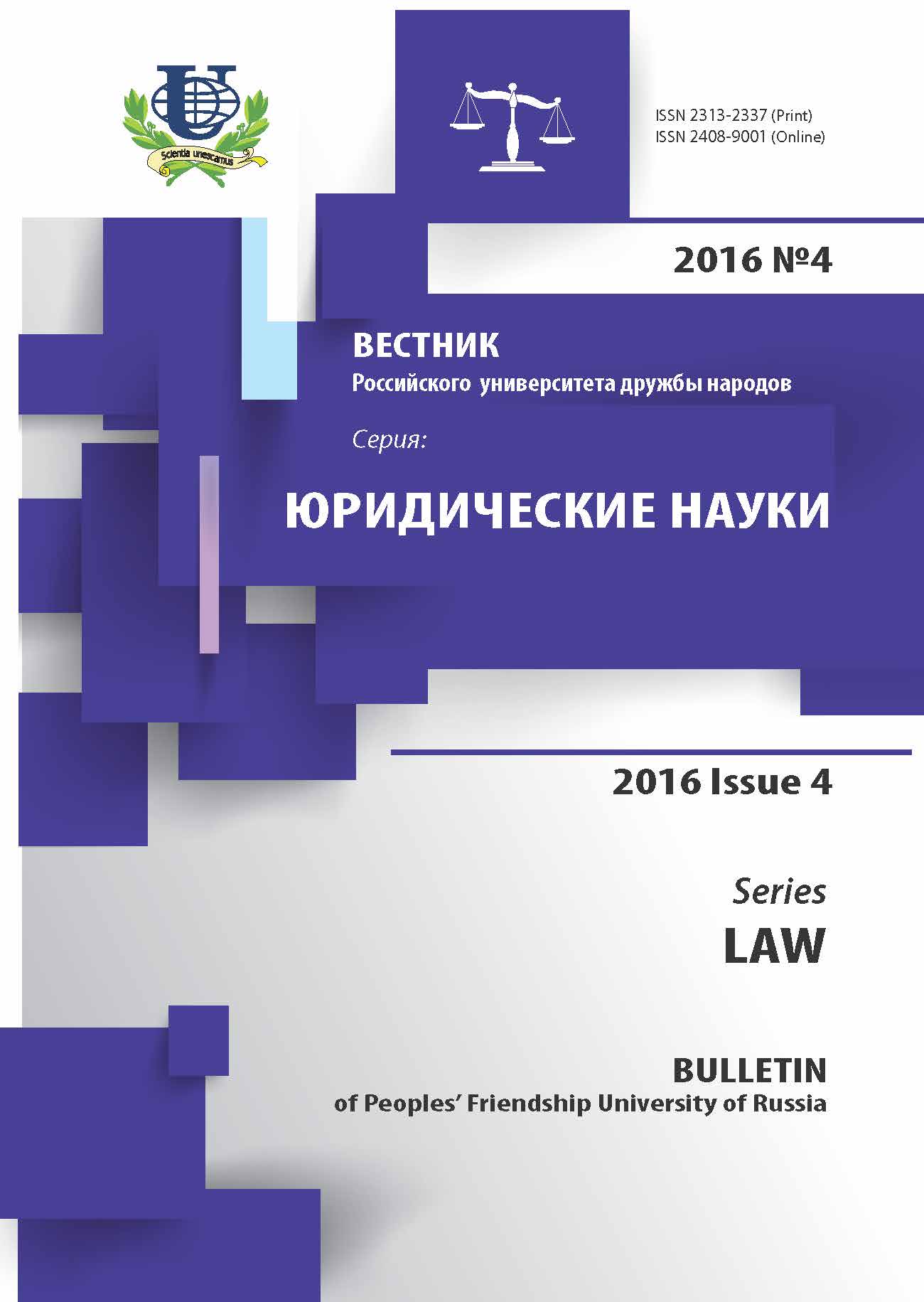Deputy - Voter - Legislature
- Authors: Lonskaya S.V1, Gerasimova E.V1
-
Affiliations:
- Immanuel Kant Baltic Federal University
- Issue: No 4 (2016)
- Pages: 52-60
- Section: Articles
- URL: https://journals.rudn.ru/law/article/view/15128
- ID: 15128
Cite item
Full Text
Abstract
The legal case brought to the attention of the Charter court of the Kaliningrad region and later considered in this article dealt with the following situation. A Deputy from Kaliningrad Duma was denied his interpellation based on the fact that if the information request concerns the citizens appeals from another electorate, then it can not be fulfilled. The opposition between «his» and «others» deputies as well as «his» and «others» voters is indicated by the authors as the legal and scientific issue. The example of this case in the Charter court of the Kaliningrad region is examined and the existing relationships between the Deputy, voters and Legislature arising from the implementation of parliamentary activities also are considered. Analysis of the legal norms through the dogmatic method helped the authors to conclude that the legal form of the relationship of the Deputy and voters include relations between the Deputy and the voters of his district. Although it does not mean that other citizens are outside in such relations because the electoral legal relations and the relations for the realization of other political rights and freedoms should be separated. Model of the Deputy’s relations with his electors should be considered as elements of the imperative mandate, but not as a limitation of the rights of the Deputy to the implementation of public law parliamentary activities or restriction of the constitutional rights. Such conclusion is based and followed from the economic model «principal-agent» that was used in this research. From such point of view the triad “Voter-Deputy-Legislature’’ includes the relationship not only between the voter and Deputy, but between the voter (citizen) and the Legislature, so the Deputies act as the sub-agents. It is therefore evident that any forms of parliamentary activities will cover not just the «electorate», but all citizens that are under the jurisdiction of the Legislature.
About the authors
Svetlana V Lonskaya
Immanuel Kant Baltic Federal University
Email: SLonskaya@kantiana.ru
Law Institute 6, Frunse st., Kaliningrad, Russia, 236006
Evgeniya V Gerasimova
Immanuel Kant Baltic Federal University
Email: EGerasimova@kantiana.ru
Law Institute 6, Frunse st., Kaliningrad, Russia, 236006
References
Supplementary files















